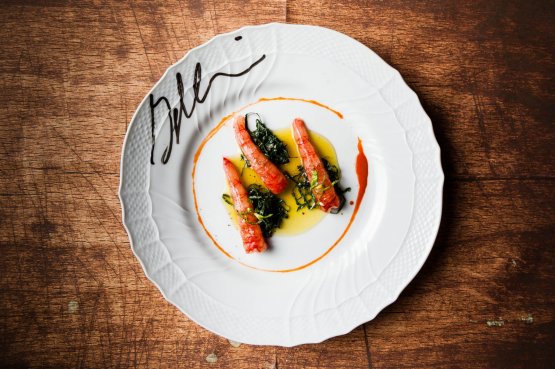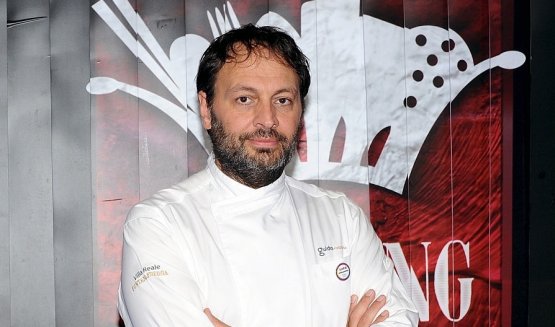The circular economy model, under current debate and regulation on behalf of the Environmental Commission, is focused on the system’s sustainability.It implies no product waste and the continuous reuse of raw materials in contraposition with the “linear” model, which goes from raw material to waste. This model also refers to food waste, which is becoming increasingly important, also thanks to EXPO Milano 2015. Contrary to other aspects, it pays strong attention to all the members of the food supply chain, including restaurants.
Yet is this theme really dear to our chefs? After meeting 360 chefs over 6 months (presenting The CooKing Show on RAI3) I can say that reducing food waste is a theme that is much more important than I imagined, even though perhaps it is not so widespread yet. There are different chefs proclaiming they are careful to reduce waste as much as possible, but those who have implemented a real systematic anti-waste strategy leaving no space for chance aren’t in fact many.

Gamberi from Santo Spirito – by Igles Corelli – the head of the prawns is transformed, in a few seconds, into an excellent mayonnaise
These restaurants carefully plan their supplies, work mainly upon reservation, allow to choose between a full and a smaller portion, have a limited number of courses in the menu, and enhance every ingredient to the fullest in their dishes, including parts that are usually considered waste. Since something is changing in fine dining and more and more chefs are becoming sensitive and apply virtuous activities, an interesting issue is also how to communicate this to their clients. Among the most keen,
Nicola Portinari,
Davide Oldani,
Igles Corelli,
Gianfranco Pascucci,
Matteo Vigotti and
Franco Aliberti certainly struck me.
The latter, chef at
Évviva – Dolci e cucina a scarto zero turned fighting waste into the manifesto of his restaurant and is a real pioneer in Italy in this sense. I ask him how his clients take this commitment and how he communicates it. The chef explains how, given the name of his restaurant, clients themselves are the first to ask for further information. In the menu there are no special explanations, it’s the dining room staff who takes care of this.
«For instance, explaining our clients the use of less noble parts, such as peels, leaves and other by-products – says
Aliberti – requires our collaborators to get a special training as they need to be able to present and explain all the philosophy behind
Évviva and how this translates into the dishes». Yet this commitment rewards us as it allows to convey clients the concept that non-waste is only a way of giving the right value to food, of enhancing it in all its components and a way of showing deep respect for producers.

Ugo Alciati, the Piedmontese chef who offers a limited number of courses upon compulsory reservation
In these times it is therefore important to have the courage to change something in our cooking and find the best way to communicate it and perhaps the best way is to do so in the old way, with words, those of the professionals whose work is the link between kitchen and table.
Some day it will no longer be necessary to explain clients why we are doing this. Instead, one will need to justify himself in the opposite case. Today, as people are becoming more sensitive but this is still not a widespread thing, an extra effort is necessary in fine dining so as to make sure people will have the right perception of the issue: it’s not about recycling leftovers or wastes but a contemporary way of cooking, in line with the principles of circular economy. In other words, this is the real cooking of the future.